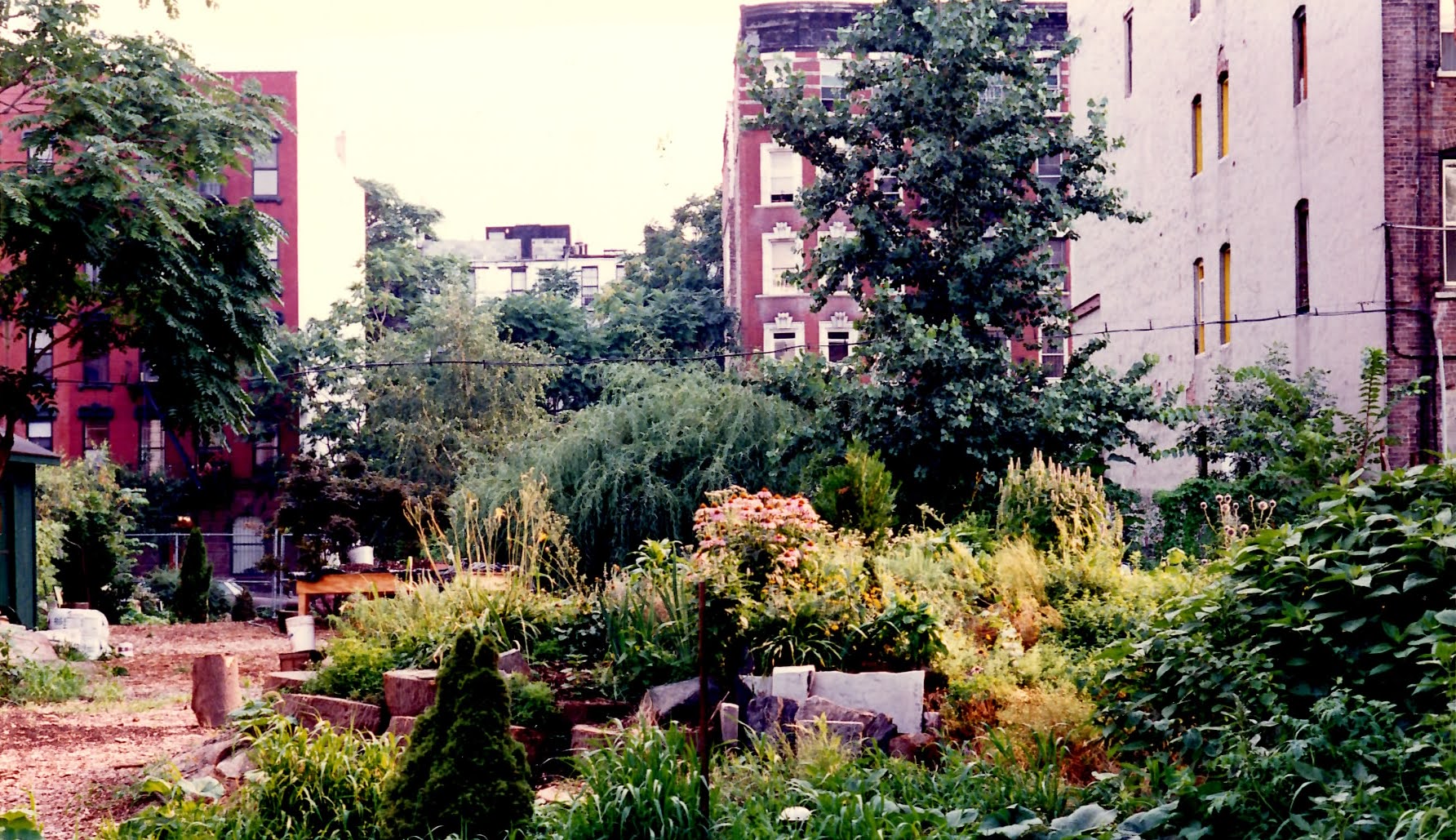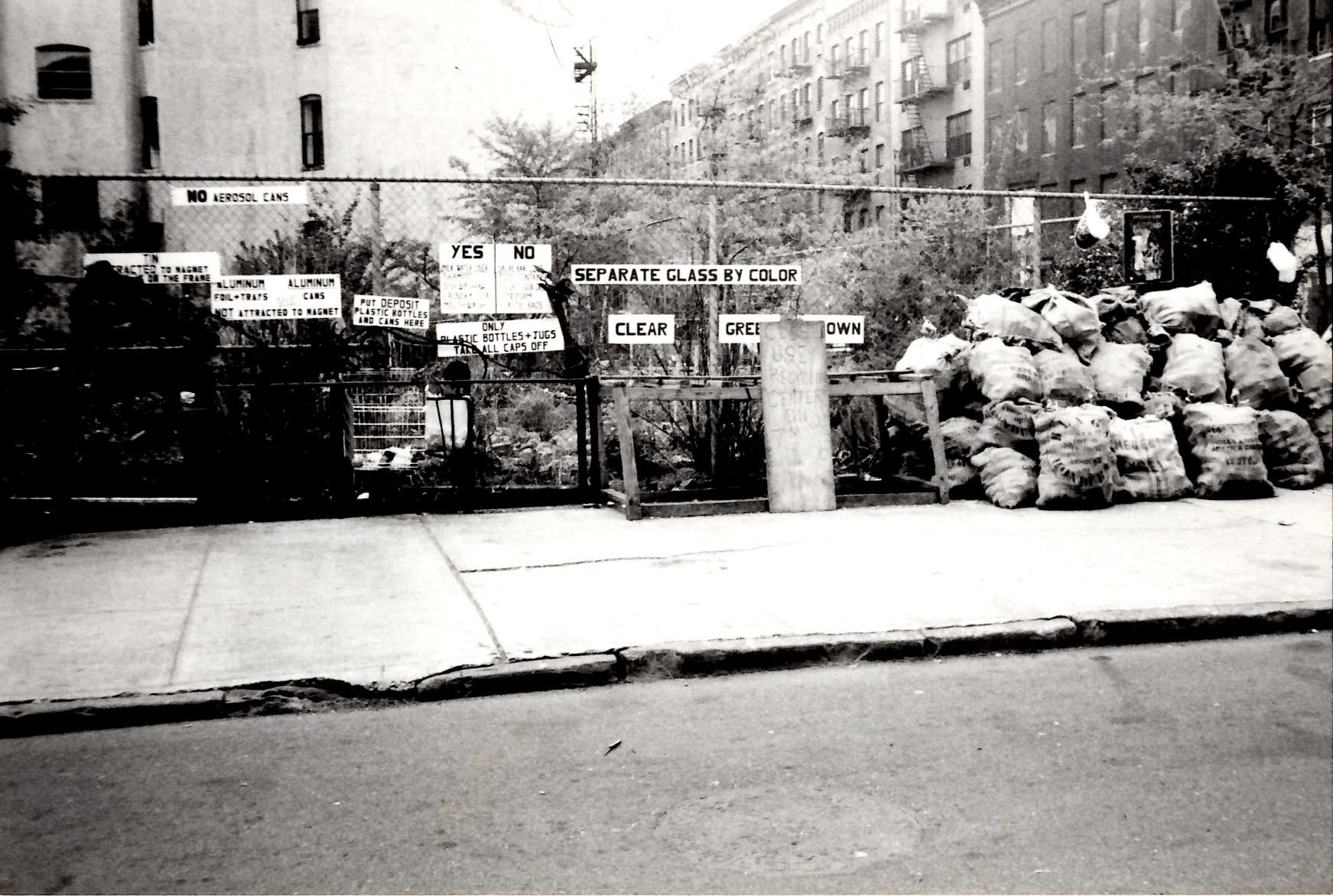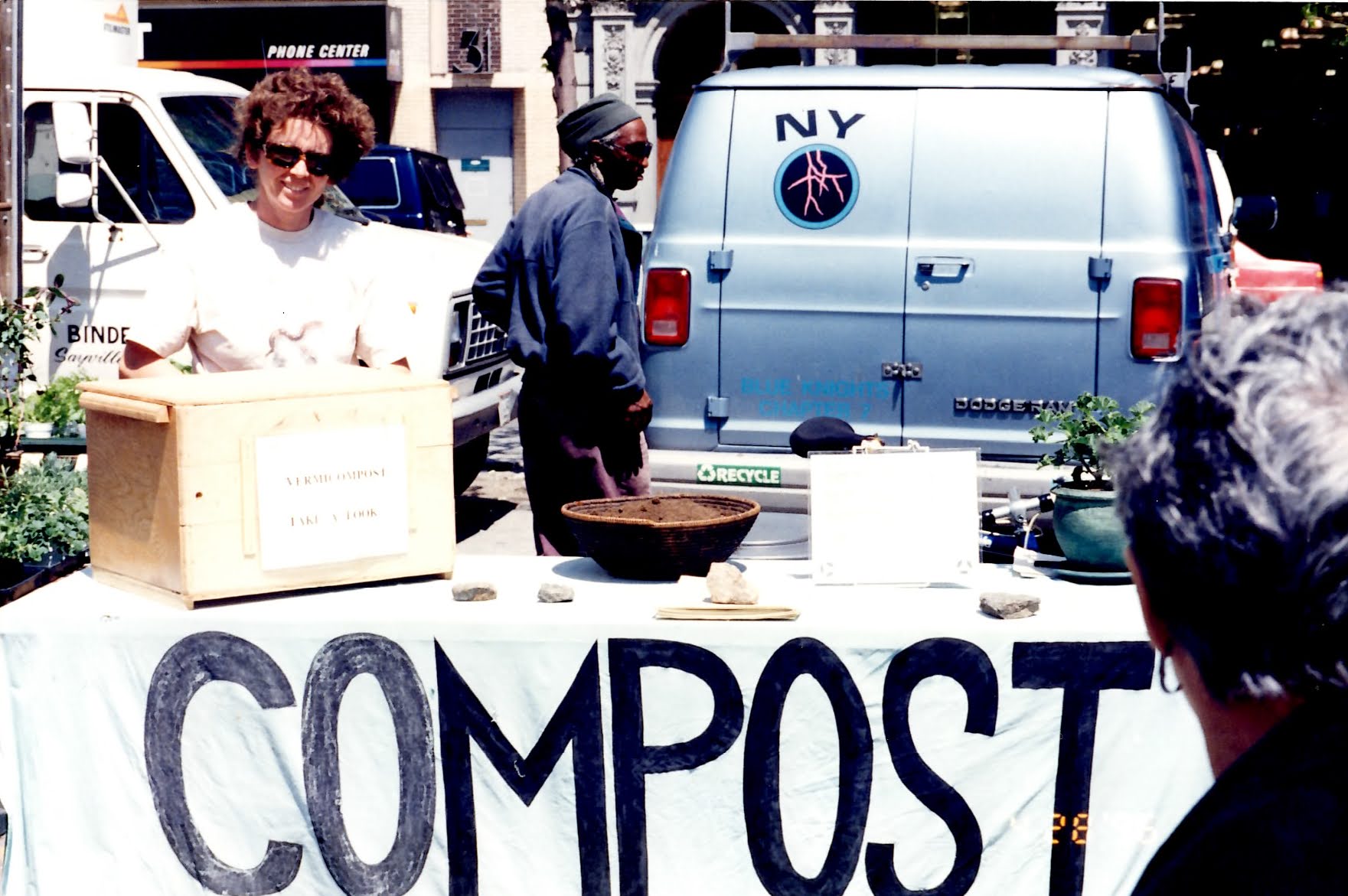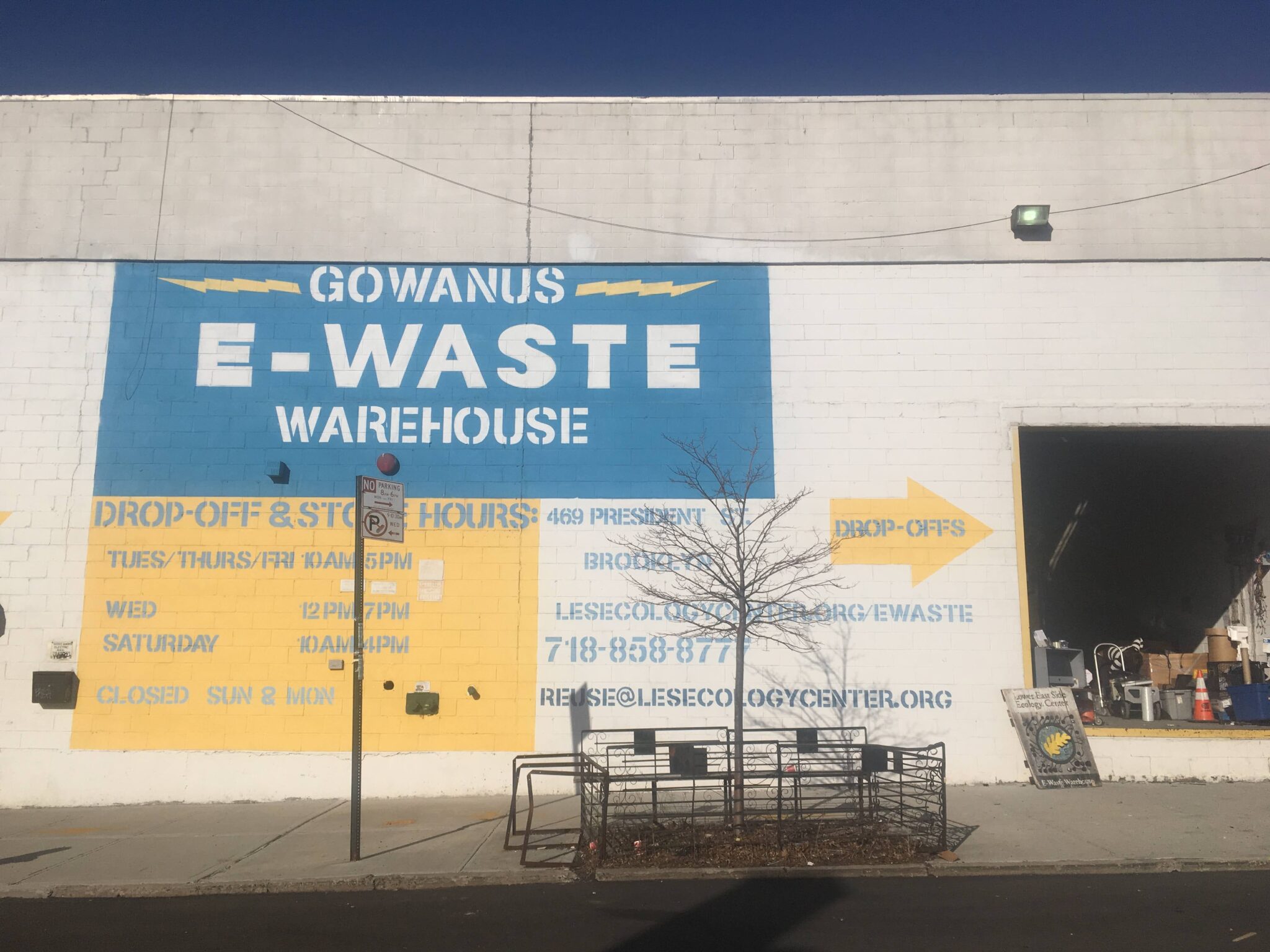History

The Clyde Romero Memorial Garden in full bloom in 1995.
History & Timeline
When Christine Datz and Clyde Romero met in 1986, they shared a deep passion for the environment and improving their neighborhood. They brought a people-powered approach to conservation and sustainable living, launching the Lower East Side Ecology Center in 1987. Their efforts grew over the years, and today the Ecology Center works citywide.

Our first recycling drop off at the 6th Street & Avenue B Garden
Six years before NYC established a citywide recycling program, the Ecology Center brought recycling services to the underserved Lower East Side. We offered a drop-off site for paper, metal, glass, and plastic at the 6th Street and Avenue B Garden.
By 1990, the Ecology Center had leased four rubble-filled city-owned lots on E. 7th Street between Avenues B and C. This 15,000-square-foot space allowed the organization to start a community composting program by inviting people to drop off fruit and vegetable peelings for composting. Volunteers also started to pick up food scraps from local businesses, such as health food stores and restaurants, to add to the growing compost piles. The Ecology Center slowly began transforming the city-owned lots into an attractive, landscaped garden, demonstrating how composting of food waste can improve quality of life and ecology on a community level. This space is now the Clyde Romero Memorial Garden, a 6,000-square-foot permanently protected community garden.

Christine and Clyde at the Union Square Greenmarket in 1998.
In 1994, the Ecology Center expanded its composting program to the Union Square Greenmarket, the largest farmer’s market in the city. This high-profile location raised awareness of composting in the city. With the growth of our food scrap collections, we moved to a larger compost processing space in East River Park in 1998.
Since 2005, the Ecology Center has been working with the NYC Department of Sanitation as an NYC Compost Project partner.
Over three decades, the Community Compost Program has been a pioneering model for other groups to start food scrap collection programs across the five boroughs and in cities nationwide.
The Ecology Center’s Stewardship Program started in 1990, when we turned a garbage-strewn, rubble-filled lot into a vibrant garden. We have continued our work in green space stewardship ever since. In 1998, the Ecology Center moved its programs to East River Park, where we began mobilizing volunteers to care for the park. After the devastation of Superstorm Sandy, we added over 5,000 native plants to the park, creating an oasis for people and wildlife. In 2021, construction for the East Side Coastal Resiliency Project (ESCR) started, closing large portions of the park to install flood protection and rebuild the park. The work is projected to be completed in 2027.
The Ecology Center started its Environmental Education Program in 2001 to connect New Yorkers of all ages with the urban environment surrounding them and educate the next generation of environmental leaders.

The Gowanus E-waste Warehouse in operation from 2012–2020.
In 2003, the Ecology Center started its Electronic Waste (E-Waste) Program to improve access to responsible disposal of unwanted electronics by offering weekend pop-up events in neighborhoods throughout the city.
From 2012 to 2020, the Ecology Center operated the Gowanus E-Waste Warehouse, a 10,000-square-foot facility offering e-waste recycling, and a reuse program that repurposed discarded e-waste with a ReUse Store and prop library. Unfortunately, because of neighborhood development pressures, we lost the warehouse in 2020. We continue to offer pop-up e-waste recycling events across the city and are exploring ways to reopen a permanent drop-off site and reuse center.
Three and a half decades after starting our environmental programs, the Ecology Center continues to lead the way in sustainability, developing new community-based models of urban ecology by advocating for equitable, closed-loop systems to handle our waste and creating inclusive spaces to learn and collaborate for a greener and more just society.